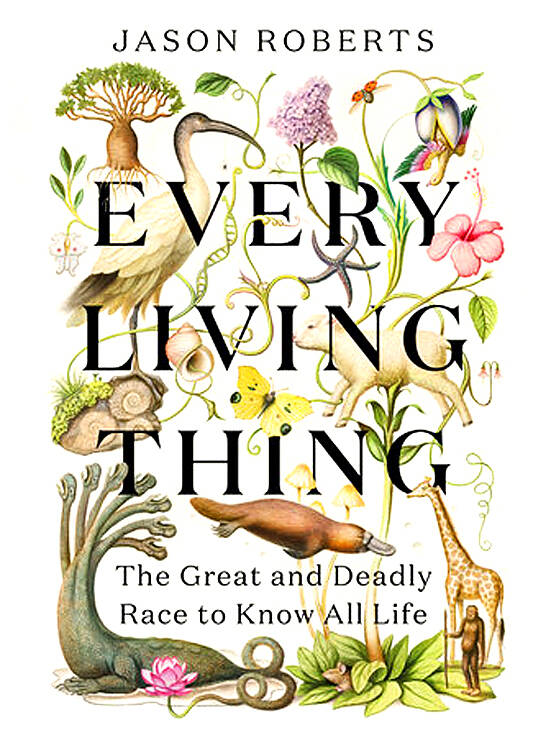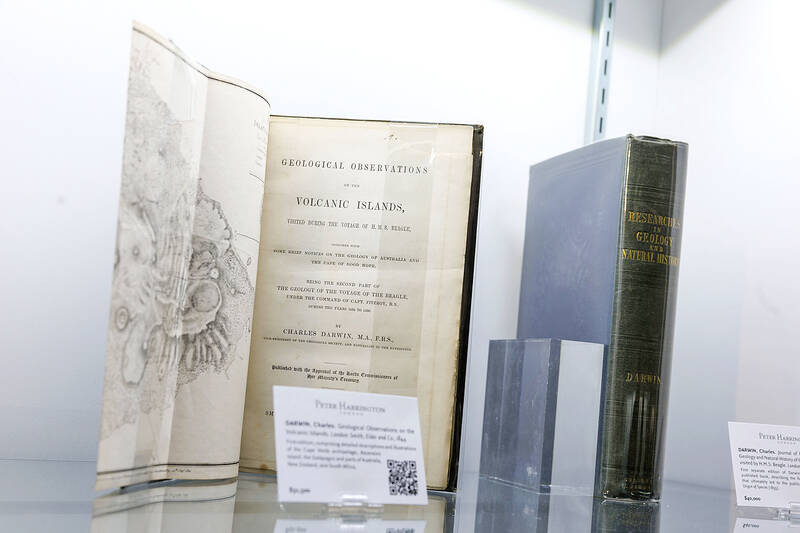Shortly after Charles Darwin published his magnum opus, The Origin of Species, in 1859 he started reading a little-known 100-year-old work by a wealthy French aristocrat. Its contents were quite a surprise. “Whole pages [of his book] are laughably like mine,” Darwin wrote to a friend. “It is surprising how candid it makes one to see one’s view in another man’s words.”
In later editions of The Origin of Species, Darwin acknowledged Georges-Louis Leclerc, Comte de Buffon, as one of the “few” people who had understood that species change and evolve, before Darwin himself.
‘THE FIRST ECOLOGIST’

Now a new book will attempt to shine a light on the French naturalist’s extraordinary achievements and groundbreaking ideas, which date back to the 1740s. “Buffon was one of the very first people to postulate the change of species over time,” said Jason Roberts, author of a new book, Every Living Thing, which will be published today.
“He did not call it evolution — that word was coined later — but he was one of the first people to talk about it and suggest there was some kind of system.”
In Histoire Naturelle, a 36-volume book Buffon worked on for 50 years, he also put forward the idea that animals were becoming extinct at a time when most natural historians believed that “God would never allow any species to ever disappear or arise over time,” according to Roberts. “The concept of species change and extinction was very controversial.”

Photo: EPA
Similarly, Buffon’s observations about reproduction anticipated the discovery of DNA: “He suggested there had to be some kind of internal shaping mechanism — that life exists on an organic cellular level and there has to be some kind of recipe or ‘internal mould’ that reproduction follows, to assemble the building blocks of cells into a particular kind of organism.”
After inheriting a fortune from a distant relative, equivalent to about US$35 million today, Buffon used some of his wealth to turn a 100-acre park he owned in Burgundy into an “environmental laboratory,” where he “let things go wild and then observed what happened,” Roberts said.
“He has actually been described as the world’s first ecologist, because he was the first person to really study a species in its own environment, and not just a specimen of a dead organism.”
Buffon observed everything that happened in his park, from the breeding habits of the foxes to the patterns of the birds and the trees they chose to nest in. “He was the first scientist to study life in its context and make live contextual observations,” said Roberts. “He would pay huge amounts of money for specimens of live animals so he could see them and interact with them.”
Instead of evolution, Buffon used the term “degeneration” to refer to a natural process “outside the regular reproductive process” that brought about change to a species. The term did not have negative connotations at the time.
But Buffon never figured out how this species change actually took place: it took Darwin, and his theory of natural selection, co-developed with Alfred Russel Wallace, to shed light on the process.
NATURAL HISTORY
Even without this key insight, Buffon postulated that new species must have come into existence and changed over time, while some species must have gone extinct. “That was a very, very radical idea at the time, and Buffon was censured for it by the Sorbonne: he had to write a statement publicly renouncing everything he had written,” said Roberts. Buffon was later formally accused of heresy for implying that Earth was older than the biblical record.
“Buffon suspected it was a matter of millions, if not billions, of years,” said Roberts. “He pioneered the idea of time on a geological scale.”
Unlike his contemporary Carl Linnaeus, who believed that nature was static and every species had stayed exactly as God created them, Buffon believed nature was too complex and changeable to be easily categorized.
He was even concerned about the impact of human-caused climate change. “Buffon had enemies, because his message — that nature cannot be conquered, that humans were, in fact, part of nature — was essentially disconcerting to other people.”
Roberts said he quickly realized that the world wasn’t receptive to his ideas. “He would make a statement like: ‘For species to change, one must imagine that the earth is millions of years old,’ hoping that one day people would be ready to hear that. But then he would have to add a sentence: ‘But of course, that’s ridiculous speculation. The Bible tells us otherwise.’”
Since Buffon had to keep undermining his own observations, it was easy for Victorian naturalists to brush aside his contributions, suggesting — as Darwin did — that Buffon’s opinions “fluctuated greatly.”
Roberts hopes his book will help to reassert Buffon’s rightful place in history: “The outrage that greeted Darwin in 1859 is well known,” he said. “Imagine if those ideas had been asserted in 1759.”

In the next few months tough decisions will need to be made by the Taiwan People’s Party (TPP) and their pan-blue allies in the Chinese Nationalist Party (KMT). It will reveal just how real their alliance is with actual power at stake. Party founder Ko Wen-je (柯文哲) faced these tough questions, which we explored in part one of this series, “Ko Wen-je, the KMT’s prickly ally,” (Aug. 16, page 12). Ko was open to cooperation, but on his terms. He openly fretted about being “swallowed up” by the KMT, and was keenly aware of the experience of the People’s First Party

Aug. 25 to Aug. 31 Although Mr. Lin (林) had been married to his Japanese wife for a decade, their union was never legally recognized — and even their daughter was officially deemed illegitimate. During the first half of Japanese rule in Taiwan, only marriages between Japanese men and Taiwanese women were valid, unless the Taiwanese husband formally joined a Japanese household. In 1920, Lin took his frustrations directly to the Ministry of Home Affairs: “Since Japan took possession of Taiwan, we have obeyed the government’s directives and committed ourselves to breaking old Qing-era customs. Yet ... our marriages remain unrecognized,

Not long into Mistress Dispeller, a quietly jaw-dropping new documentary from director Elizabeth Lo, the film’s eponymous character lays out her thesis for ridding marriages of troublesome extra lovers. “When someone becomes a mistress,” she says, “it’s because they feel they don’t deserve complete love. She’s the one who needs our help the most.” Wang Zhenxi, a mistress dispeller based in north-central China’s Henan province, is one of a growing number of self-styled professionals who earn a living by intervening in people’s marriages — to “dispel” them of intruders. “I was looking for a love story set in China,” says Lo,

Standing on top of a small mountain, Kim Seung-ho gazes out over an expanse of paddy fields glowing in their autumn gold, the ripening grains swaying gently in the wind. In the distance, North Korea stretches beyond the horizon. “It’s so peaceful,” says the director of the DMZ Ecology Research Institute. “Over there, it used to be an artillery range, but since they stopped firing, the nature has become so beautiful.” The land before him is the demilitarized zone, or DMZ, a strip of land that runs across the Korean peninsula, dividing North and South Korea roughly along the 38th parallel north. This